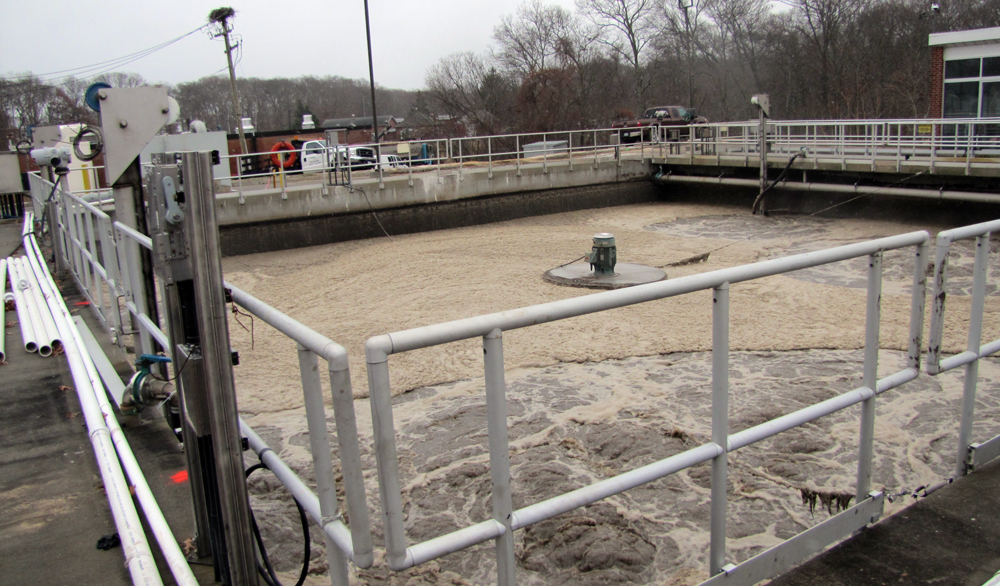NY-Alert system to disclose sewage pollution information

The New York State Department of Environmental Conservation Thursday announced it has developed a new system to alert the public of sewage pollution discharging from treatment plants into nearby water.
It comes just weeks after reports of partially treated sewage discharging into the Peconic River from Riverhead Town’s sewage treatment plant — which happened on four occasions in 2014 due to mechanical failure.
The system — which will be ready for use by Jan. 15 — will notify the public within four hours of any discharge that exceeds the amount of fecal coliform bacteria permitted by a plant, according to the agency.
The Sewage Pollution Right to Know Act, which passed in 2013, requires plant officials to notify the DEC within two hours of the discovery of a discharge, and then notify the public and adjoining municipalities.
“The intent of the law is to provide the public with timely information so that they can avoid recreation activities in bodies of water with harmful levels of bacteria,” said Mark Griffin, the agency’s deputy chief, during a press conference held at the department’s headquarters in Albany.
Residents can decide whether swimming or fishing in surface waters near a plant discharge zone are safe, he said.
Discharge information will be shared by the state’s official NY-Alert system, used by state agencies and municipalities to send out calls, text messages and smart phone notifications about public safety concerns.
Residents can sign up for the notifiactions at www.nyalert.gov.
Riverhead’s is one of four sewage treatment plants spanning the North Fork, which include municipal plants in Greenport Village, Shelter Island and Plum Island.
Greenport Village administrator Paul Pallas said its plant has been operating within its permit limits “all along,” and has not yet had to notify the DEC of any discharge issues.
“It is a positive thing,” said Kevin McAllister, a marine biologist who heads the non-profit advocacy group Defend H20. “My experience with some of these spills that have happened, a number of them have kind of occurred very quietly, and the public is not aware. In some cases it is a public health risk.”
“If you have permanent polluter — which is what these plants really are — the public needs to know it is at least operating within the limits of its permits. If there are problems, they need to be disclosed,” he continued.
“We have a right to know how the water is doing.”







